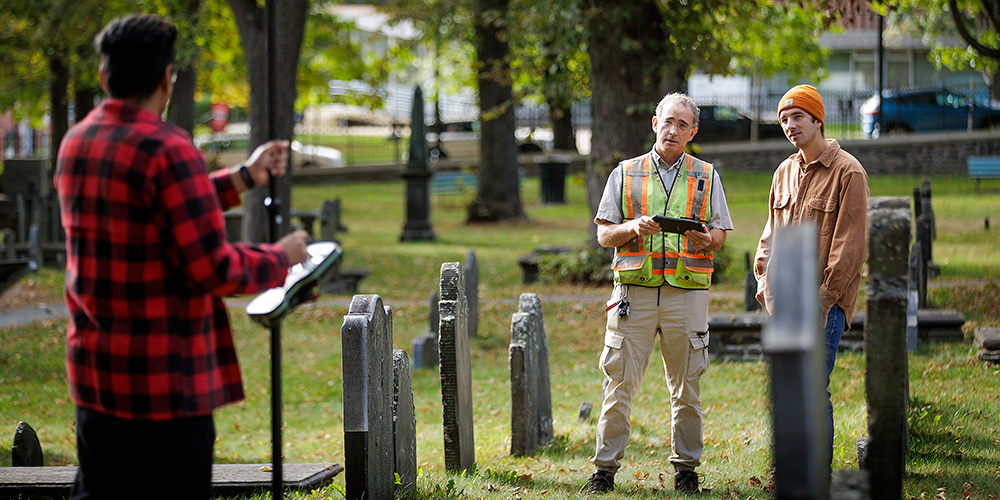Anthropology Program

Why Study Anthropology?
Are you curious about past and present cultures, and how language, society, and people developed? Anthropology encompasses culture and human development; society and how we communicate; evolution and social institutions; fossils and human behaviour.
The Saint Mary’s approach
Take your learning outside the classroom. Studying Anthropology at Saint Mary's means taking part in fascinating archaeological digs, working closely with archaeologists in the field, or participating in real crime scene investigations.
Hands-on research opportunities
Anthropology students benefit from frequent field schools, including archaeological digs at Grand Pré, Nova Scotia (a National Historic Site of Canada) where they explore an 18th-century Acadian community. In St. Felice, Italy, our students work closely with archaeologists in the investigation of a Roman villa from the 1st century AD. Students interested in forensic anthropology can gain valuable experience at the Medical Examiner’s Department in Miami-Dade, Florida, where they can participate in real crime scene investigations and autopsies.
Anthropology students have engaged in international exchanges with Japan and served as research interns in Ho Chi Minh City, Viet Nam—all for academic credit.
Sample courses offered:
- Forensic Skeletal Identification: A detailed examination of bones of the human skeleton for forensic purposes.
- Who Owns the Past?: Why preserve the past, and in what form? How has the past been used and abused for political purposes in different historical and cultural contexts? To what extent have administrative policies and ethnocentric attitudes towards Indigenous peoples alienated Indigenes from anthropologists? How do museums, collections, the restitution of cultural property and the illicit traffic in relics contribute to the situation?
- Warfare: The course will examine the nature and structure of human conflict by evaluating anthropological theories of warfare and aggression in light of the case materials available on small-scale societies. In addition, particular attention will be devoted to the role of racism in human conflict and a critique of socio-biological theories of human aggression.
- Archaeological Remote Sensing: The archaeologist's toolkit is changing rapidly as new technologies allow us to detect and map archaeological sites and features without digging. Students engage in hands-on learning with terrestrial and aerial remote sensing technologies including ground penetrating radar, electromagnetic induction, and LiDAR.
Future career opportunities:
- Archaeologist
- Anthropologist
- Museum curator
- Forensic anthropologist
- Conservation restoration technician
- Cultural artifact specialist
- Archivist
Anthropology also offers a BA option in Co-operative Education.
Viewing the world through a new lens
"I’ve always been passionate about history, but I never wanted to be an historian. I went into Anthropology wanting to study archaeology, but I quickly realized anthropology was so much more than that. Anthropology gives you a new lens through which to view the world.”
- Grant MacNeil BA'12